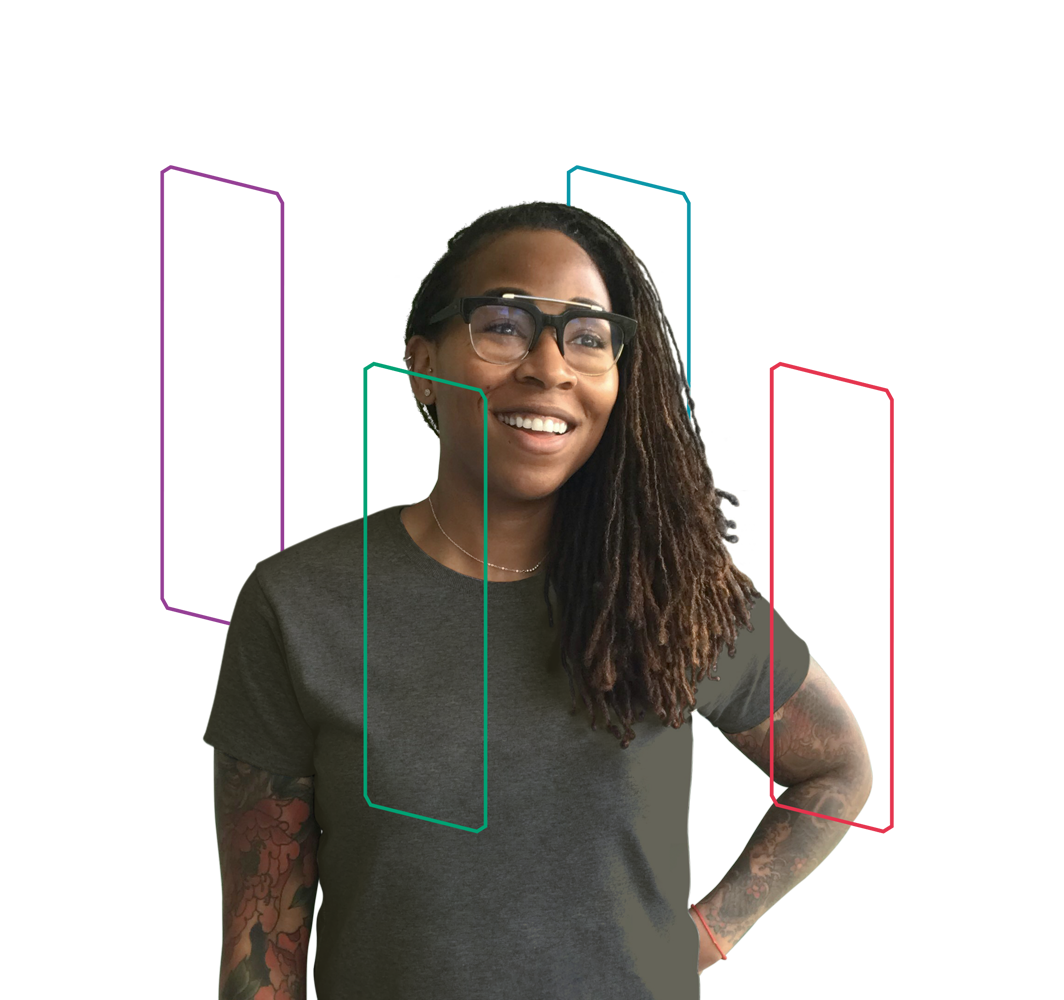“To me, the definition of an innovator and entrepreneur is somebody who just wants to make something better … what I say about COVID is that it’s finally proving that innovation is needed in moments of crisis … the way we’ve done business has to stop. And if there’s ever a time for nurses to come out stronger, it’s during this pandemic, where we can finally own the innovations that we have put in place to save patients’ lives.”
Rebecca Love believes that we are in the midst of a defining moment for nursing—that with COVID-19 we have a unique opportunity to redefine who we are and what we do for the world. And that’s what we believe, too, SHIFT Talkers. We believe that nursing must change, that we must be the ones to change it, and that it’s finally time to make the shift. So with that, we give you our season finale, “A Love Letter to Nurses.”
We knew that Rebecca Love was perfect for SHIFT Talk the very first time that we spoke to her. It is impossible not to be blown away by this nurse who is so full of passion, energy and yes, love. We are deeply inspired by her non-traditional career path and believe you will be too. Rebecca started out as a bedside nurse. But she’s the type of person who’s always thinking outside of the box, and it was incredibly frustrating to her to constantly be told to stick to process and protocol and “stay in her lane.” She had ideas! Ideas that might make things better—for her patients, for other nurses—and she couldn’t understand why no one wanted to hear them. Eventually she left clinical practice and entered the business world, going on to start the first formal program in nurse entrepreneurship and innovation at Northeastern University. She’s also founded multiple businesses and the non-profit nursing organization, the Society of Nurse Scientists, Innovators, Entrepreneurs & Leaders (SONSIEL).
She’s accomplished so much, but at the beginning of her journey, she didn’t feel very supported.
“When I started to talk about innovation or entrepreneurship or starting my company, I felt like I was thrown out of the nursing profession. The way that nursing was built … the institutions that exist have a very specific definition of what nursing should be, in my opinion. It’s like—academia, become a nurse practitioner, publish, and do nursing research. And that’s what you’re defined in, in this model. So when you go outside of that, they weren’t really that supportive.”
Rebecca began to realize that her experience was not unique. Rather than being the exception, it was the rule for nurse innovation to be dismissed. Nurses have been innovating for decades, and for decades, their efforts have gone unrecognized and underappreciated. Her interview with SHIFT Talk is a thrilling lesson in the history of nurse innovation (there’s a reason Rebecca is a much-sought-after speaker). From the sanitary practices introduced by nurses during the Crimean War to the ingenious and innovative ways nurses have figured out how to compassionately care for patients with highly contagious illnesses like Ebola, she covered it all. And then she immediately made this history lesson relevant to every nurse in clinical practice today.
“How many times have we been at the bedside that we’ve MacGyvered a solution that, you know, if we could scale it, we’d save thousands of people’s lives, right? But we’re told, ‘Hey, that’s great, but just stay in your lane,’ and you have a job or tasks—we’re given a lot of tasks to do. And that is what frustrates me the most about nursing, we come up with these great solutions. We come up with these great ideas, but largely our job is … to accomplish tasks.”
That really hit home for our host Nacole, who’s talked to many of our guests about instances when the processes and protocols nurses are instructed to follow—while meant to keep patients safe—can sometimes be a barrier to their efforts to educate and care for patients. If you’ve been following along with us this season, you know that most of our guests have a story—sometimes two—about getting written up for doing something that was actually in their patients’ interest. Rebecca captured just how frustrating this fixation with “following the rules” can feel.
“We follow protocol, we follow procedure, but then we realize most of this protocol, most of the procedure, a lot of these machines that we’re working with were never designed to actually do what we need them to do more efficiently. So, we create a workaround to manage that system. And what happens is it’s unlike places like Google or Amazon, where workarounds are like, ‘Oh my gosh, that’s a better user experience. You get a promotion,’ we’re sort of slapped on the hand because we went outside of the protocol … We’ve learned as nurses to be really good at working around. I don’t know if you know this statistic, but the average nurse does about 27 workarounds per shift, which is insanity, just insanity.”
You could almost hear the wheels turning in Nacole’s head. And hey, we were right there with her. We do all do that. We are innovators. So what’s the problem? Rebecca explained that, too. It comes down to the business of health care, a structure that many of us aren’t as well acquainted with as perhaps we should be.
“We as nurses can’t charge for any of our activities … the physician bills for our services, because [that] is the business of health care. Nurses historically have been seen as a cost structure to health care systems, which means that we get hit with the first cuts, the first lack of resources, because we are seen as a cost structure, not as a revenue maker for health care systems and [that’s] why we fundamentally are blocked with so many of the things that we try to take forward…”
This is all true, and it can be disheartening. If the issues are systemic, if they’re embedded into the very fabric of our system, do we even stand a chance of changing them? Rebecca thinks that we do—if we seize the opportunity that COVID-19 has presented.
“I’m hearing from these nursing administrators that their physician colleagues are [now] saying, ‘Oh my gosh, the nurses have such knowledge. I had no idea that this was a barrier. Like if I asked to do this kind of protocol this way, or hang this kind of medication … that it would complicate their workflow and that they came up with these better solutions to actually creating answers to some of these really big barriers.’ Their [nurses’] insights are so valuable that suddenly things are changing.”
If we embrace our identity as innovators and pursue professional development along this path, we can create the career ladder that nursing has been missing for so long. We can define not only new processes for caring for our patients, but also entirely new nursing roles that allow us to better connect with both our patients and other decision-makers in health care. If there’s one thing that we want you to come away with from this season, it’s a feeling of empowerment. You can shape your own future. You can shape the future of the profession. Rebecca believes in you. We believe in you.
So as we come to the close of this love letter, SHIFT Talkers, we want to remind you of Nikki, so that you are inspired to be the change you want to see in the world. Of Jackie, so that you remember how much your voice matters. Of Michelle and Tricia, so that you know you are not alone when you are suffering. Of Lovoria, so that you feel confident in challenging the systems and stereotypes that create health inequities for our patients. Of Alison, so that you realize all that you are capable of, even amidst the chaos that is COVID-19. And of Lynne, so that you see that a seat at the table is within reach.
These nurses are your tribe. They love you—and we do too.
So stay safe, stay awesome, and we’ll see you soon.
About the guest
Rebecca Love is a natural leader who, ironically, felt she had to leave her scrubs and stethoscope behind to truly make a change in her beloved profession of nursing. Why? Because bedside nurses aren’t typically encouraged to innovate. When they have ideas, they’re told to stay in their lane. Sick of hearing, “that’s nice, but…” Rebecca exited the clinical world and entered the business world. Not only did she create the first nurse innovation and entrepreneurship educational program in the nation, but she is also the founder of multiple healthcare companies and the cofounder and president of SONSIEL, the Society of Nurse Scientists, Innovators, Entrepreneur and Leaders. But Rebecca has never lost her connection to clinical care and her peers who work directly with patients. In fact, throughout the COVID-19 pandemic, she has been speaking to nurses from all over the world, doing everything she can to support them, including sourcing hundreds of thousands of pieces of PPE through SONSIEL.


